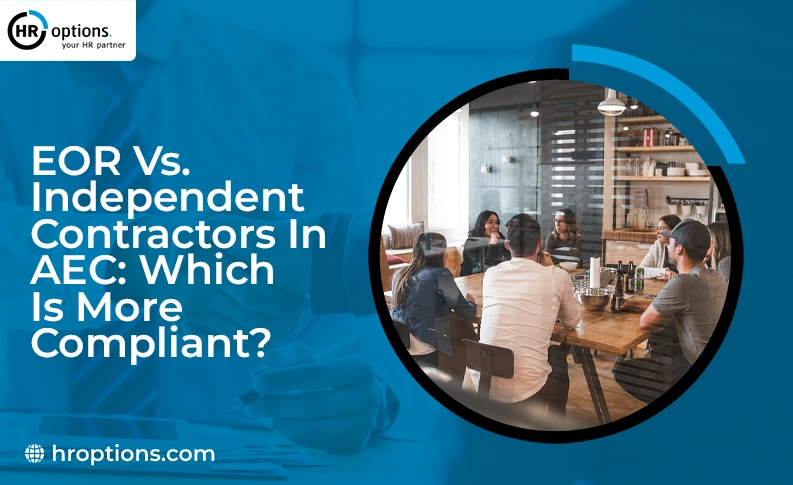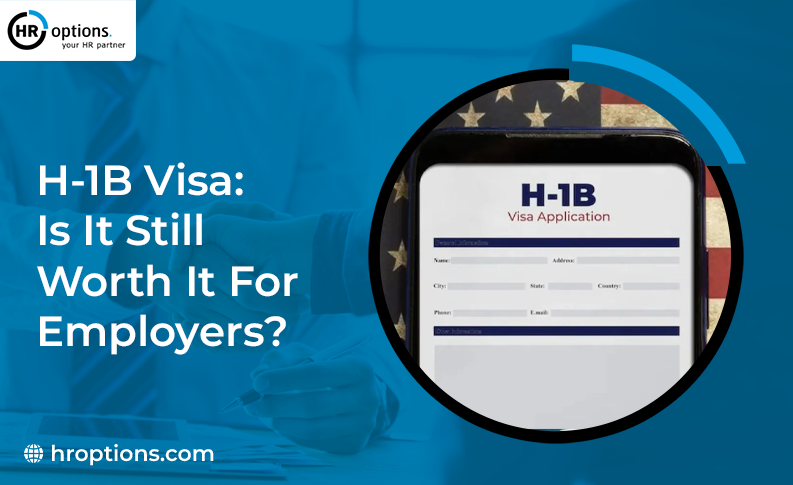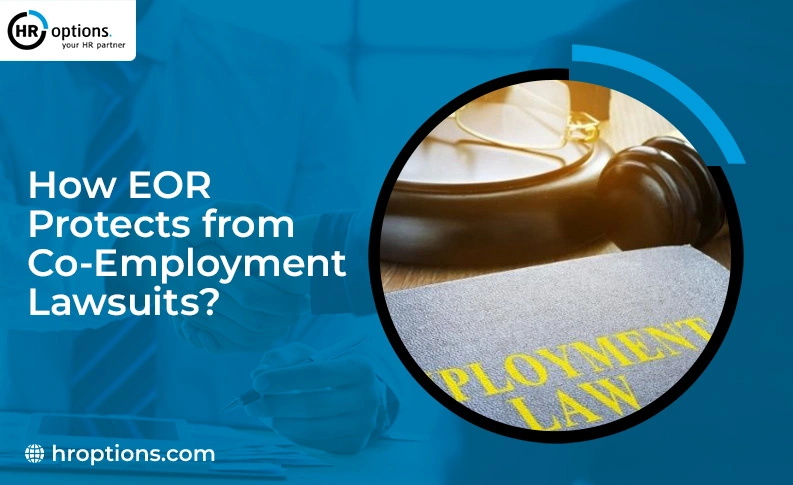Hiring the right workers in the Architecture, Engineering, and Construction (AEC) industry can make or break a project. Business owners often choose between using an Employer of Record (EOR) or hiring Independent Contractors. Both options have their benefits, but one clearly stands out when it comes to legal compliance.
An EOR is a third-party service that takes full responsibility for hiring and managing workers, including handling payroll, taxes, and legal risks. Independent Contractors, on the other hand, work for themselves. They are not official employees, and businesses have fewer responsibilities toward them. While independent contractors offer flexibility, EORs provide more legal safety and structure.
What Is an EOR and How Does It Work?
An Employer of Record (EOR) is a company that hires workers on your behalf. You manage the employees’ day-to-day work, but the key responsibilities of an EOR are to handle everything else, like payroll, taxes, insurance, and benefits.
EORs are especially helpful in the AEC industry, where short-term projects often cross state or country borders. The EOR ensures all workers follow local labor laws, making hiring much easier and safer for businesses that don’t want to deal with complex HR tasks.
Key Roles of an EOR
- Manages legal compliance and taxes.
- Provides benefits and insurance.
- Reduces legal risks for your company.
- Handles employee contracts and onboarding.
What Are Independent Contractors?
Independent contractors are self-employed workers who offer their services to different clients. In AEC, they may be architects, engineers, or tradespeople hired for specific tasks. They control how and when they work and bring their own tools and materials.
Hiring independent contractors can save money, but it also comes with risks. If you treat a contractor like an employee, you may face fines or legal trouble for misclassification.
Key Roles of Independent Contractors
- Design building plans and layouts.
- Provide structural or technical expertise.
- Handle plumbing, wiring, and carpentry.
- Advise on budgeting, codes, and permits.
- Conduct surveys and inspections.
EOR vs. Independent Contractors in AEC: Comparison
Here’s a clear table to compare both options based on key areas:
| Feature | Employer of Record (EOR) | Independent Contractors |
| Employment Status | Official employees | Self-employed |
| Legal Compliance | High (EOR handles it all) | Risk of misclassification |
| Payroll & Taxes | Managed by EOR | Contractor manages their own |
| Benefits | Provided (health, insurance, etc.) | Not required |
| Flexibility | Medium | High |
| Control Over Work | Can direct and manage | Limited control |
| Cost | Higher (includes full benefits) | Lower upfront but higher legal risks |
Benefits of Using an EOR in AEC Projects
EORs are a strong option for AEC businesses that must grow quickly or hire workers in different regions. The benefits of EOR services include making hiring easier, faster, and safer.
Top Benefits
- Quick hiring without legal stress.
- Full compliance with labor laws.
- Workers get benefits and job security.
- Your business avoids misclassification risks.
An EOR acts like a safety net. They let you focus on building projects while they handle the rules and paperwork.
Benefits of Using Independent Contractors in AEC Projects
Independent contractors are useful for short-term and flexible work in AEC. They offer simple and fast solutions when you need help quickly.
Top Benefits
- No need to pay benefits or taxes.
- Hire for short projects only.
- Great for specialized tasks.
- Less paperwork, quicker start.
- Easy to end after the job.
They’re a good choice when you need quick, skilled help without the extra HR steps.
Independent Contractors Vs EOR: Which One Is More Compliant?
In the AEC industry, following employment laws is very important. One small mistake, like misclassifying a worker, can cost your business thousands of dollars. Different states have different rules, and international projects add even more laws to follow.
EORs stay updated on local labor laws. EORs in AEC ensure compliant hiring, fair payment, and insurance coverage. This protects your business from lawsuits, fines, and other legal problems.
Using independent contractors without understanding labor laws can lead to:
- Tax audits
- Legal fines
- Loss of project licenses
Conclusion
Both EORs and independent contractors have their place in the AEC industry. Contractors offer flexibility and lower costs, while EORs give you full legal compliance and peace of mind. If your top priority is following labor laws and avoiding risks, an EOR is better and safer. So, if you’re still deciding between EOR and Independent Contractors in AEC, choose the option that protects your business and supports your growth.
Need help staying compliant while hiring top talent? Hire an EOR through HR Options and make your next project stress-free and successful.








